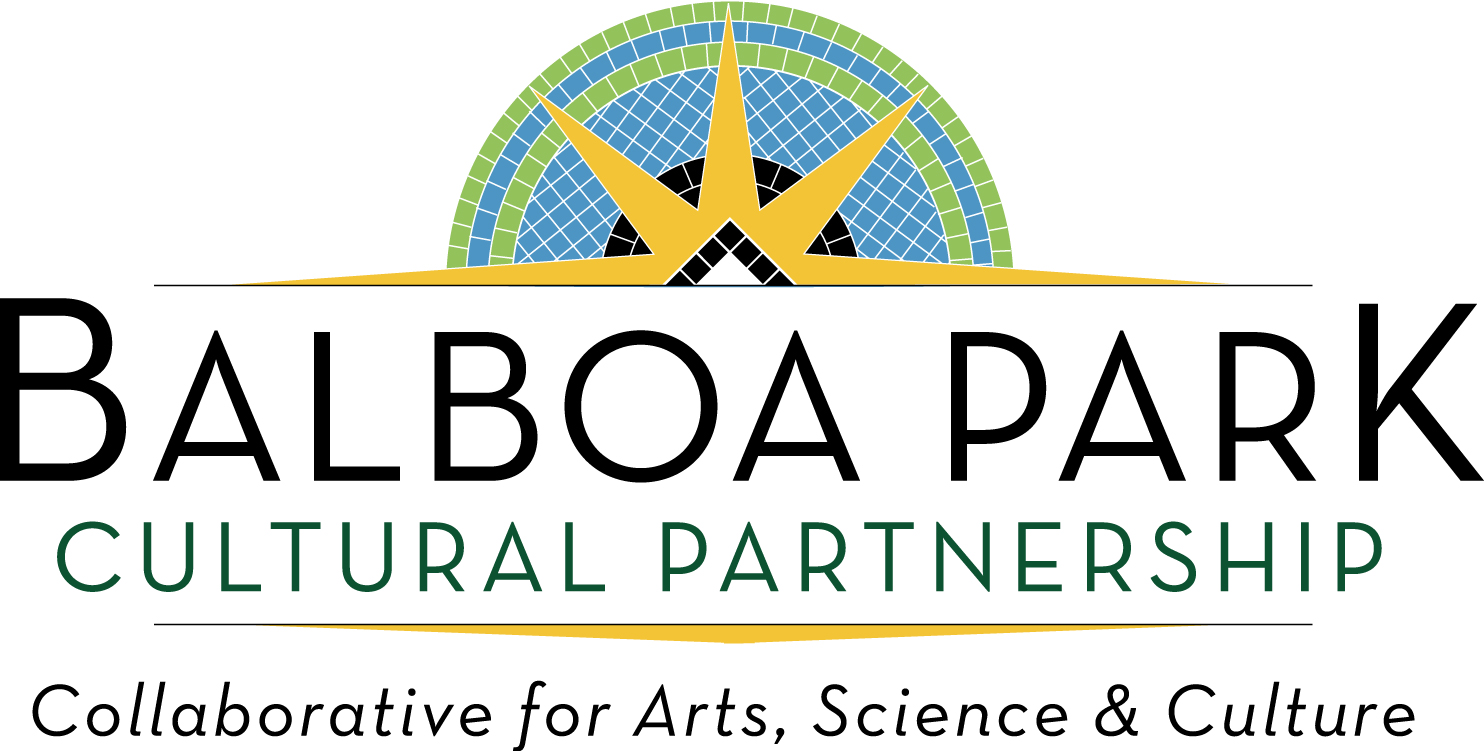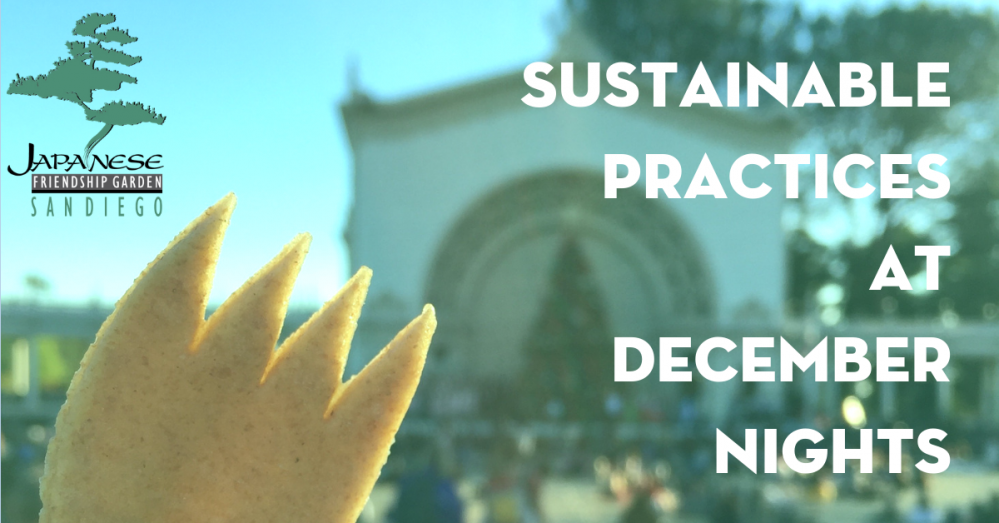December Nights has been a San Diego tradition for 41 years. Each year, locals and visitors alike celebrate the holidays by visiting Balboa Park’s museums, sampling international foods, and watching festive performances. Run by the City of San Diego, this year, the event had a visible Sustainability Commitment. Each year SDG&E enhances the main hub of the park – the Plaza de Panama – with a large, festive LED light installation. LYFT provided a discount code to allow for higher usage of ridesharing alternative transportation, for both park employees and event attendees. We can expect that the city will continue to improve the green footprint of December Nights. And just as important, individual Balboa Park organizations are making their own efforts to “green” the event.
One such organization is the Japanese Friendship Garden (JFG). As an obvious advocate for sustainability with all of their green outdoor spaces, JFG has been focusing on waste reduction and diversion over the last year. They had three large-scale events in 2018, all of which implemented some form of waste diversion practices. At the Cherry Blossom Festival in March, eco-volunteers along with staff of the Sustainability Program sorted, weighed, and recorded all of the waste from the event to get a baseline of how much and what types of refuse was created. Staff will use this data to make changes for the 2019 Cherry Blossom Festival and will measure the impact by comparing new data with the 2018 numbers. The Bon Odori Festival in August was another opportunity for improvement. At the event there was prominent, easy to read recycling and waste signage as well as spot waste sorting at stations.
But of course, the final event of the year was the biggest! Each year, December Nights draws 350,000 visitors to Balboa Park. The Japanese Friendship Garden continued their green event waste diversion and reduction goal with aide from the Sustainability Program. At the entrance to the garden where food was served, there were large waste and recycling signs with images of what items go in which bin to ease with the visitor sorting. This is an important element to waste diversion efforts because if guests don’t know explicitly where something goes they could guess wrong, risking batch recycling contamination and sending recyclables to the landfill. In addition to the signage, external partners donated items to make sure the volunteer lounge was as waste free as possible. For large events like this, JFG relies on a robust base of volunteers. In return they feed the volunteers a hot meal and offer beverages in the volunteer lounge. Volunteer & Outreach Coordinator, Chi Nakata, and Events and Marketing Coordinator, Jon Osio, had the idea to have reusable utensils in the volunteer lounge on a regular basis to cut down on plastic waste. Disposable plastic utensils have been a mainstay, but JFG staff are changing those practices, as single-use plastic utensils cannot be recycled due to size. Preserve donated 50 sets of utensils to stock the volunteer lounge for ongoing regular use. Preserve makes and distributes sturdy, reusable tableware out of 100% recycled #5 plastic, and their worn or broken products can be returned to be recycled again. An innovative San Diego based company, TwentyFifty Fork, donated 100 sets of truly compostable utensils made of soy, wheat, and corn flour, to be used at the volunteer lounge during the event. Used cutlery from TwentyFifty Fork was composted in partnership with the Living Coast Discovery Center.
December Nights is a wildly popular and busy 2-day extravaganza, however with more Park visitors comes the creation of more waste. For this event to be successful for years to come, sustainable practices like those at Japanese Friendship Garden will be important to implement, to ensure the longevity of the event and the sustainability of our beloved Balboa Park.

